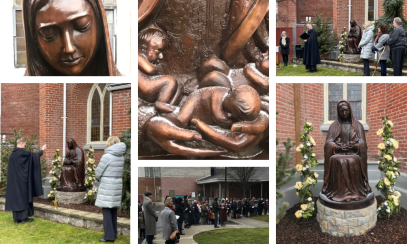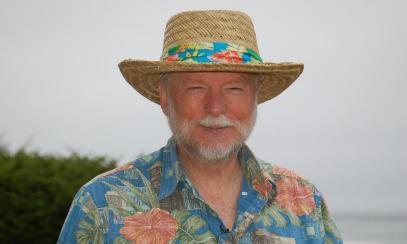Traveling by Word and Meter: The Case for Poetry
In his essay, “The Riddle of the Ivy,” G.K. Chesterton describes himself preparing for a trip. A friend arrives, sees Chesterton packing, and naturally asks him where he is going. Chesterton gives the enigmatic reply, “To Battersea.” His friend is perplexed, rather naturally, because they are currently in Battersea. After a brief back and forth, Chesterton explains himself: “I cannot see any Battersea here; I cannot see any London or any England. I cannot see that door. I cannot see that chair: because a cloud of sleep and custom has come across my eyes. The only way to get back to them is to go somewhere else; and that is the real object of travel and the real pleasure of holidays … I am seeking Battersea. The whole object of travel is not to set foot on foreign lands; it is at last to set foot in one’s own country as a foreign land.” What Chesterton means here is that the habit and custom of daily life have made it so he can no longer see the world around him. He has to travel to clear away the cobwebs of custom and allow him to see his own home as it ought to be seen.
Of course, with COVID-19 still keeping most of us at home or at least in our towns, we cannot travel around the world and so return with eyes brightened and cleared to see things more clearly. But travel isn’t the only way, and we might be able to see more than we think.
Poetry can also help us see the world around us more clearly. Poetry, whether rhymed and metered or in free verse, brings us to a new use of language, one we’re not accustomed to in the workaday world. And this isn’t to say that there’s anything wrong with prose and the prosaic. Even a realist novel can help us, but poetry does something unique to itself. It takes the language we’re accustomed to see and use and recombines it in new and unusual ways. Rhymes cause us to see two words connected we might never have thought of together. When Keats rhymes brain and grain in his sonnet, “When I Have Fears that I May Cease to Be,” we pause to wonder what metaphoric connection there might be between them. Keats is writing about the ideas he has and compares them to grains gathered in by the farmer, his mind then becomes the silo holding them in. And now, not only has our understanding of our ideas been transformed, but so has our understanding of wheat grains. Now we see them and think of them not just as grains which can be ground to become bread which nourishes our bodies, but also as our ideas, which, when undergoing similar treatment, can, by an almost alchemical process, become something beautiful, which will cause others to stop and ponder reality.
But what is this deeper reality poetry leads us into? It is, to borrow a phrase from C.S. Lewis, a glimpse of the true Narnia, the deep magic which upholds the world we live in. Romantic poets Samuel Taylor Coleridge and William Wordsworth first published the Lyrical Ballads in 1797. This book would later be seen as the beginning of English Romanticism. When Coleridge reflected on this book in his literary autobiography, Biographia Literaria, he said that Wordsworth’s poems (and by extension his own) existed to help “remove the film of familiarity.” By focusing on natural events but writing about them in a way so as to evoke their supernatural qualities, Wordsworth’s poems sought to help us see trees and rivers and farmers and shepherds more clearly, to see them for what they really are. Coleridge sought to do the same in his main contribution to this volume, “The Rime of the Ancient Mariner.” In that poem we see mankind, the moon, sea creatures, the ocean itself all transfigured by their supernatural surroundings and events. No one can read that poem and walk away thinking of albatrosses as merely large birds. It features too strongly as a symbol of Christ, especially when we learn that the bird loved the mariner who shot it with his crossbow.
Poetry, read in the right light, can help us see the world in ways God wants us to see it. We see trees alive and with feeling, brooks babbling, people enchanted into both gods and monsters. The world, as Gerard Manley Hopkins has said, “is charged with grandeur of God.” Poetry can help us see that grandeur.
We may not be able to travel right now, as Chesterton did, in order to see our homes in a new light—as though for the first time. But through the reading of poetry, we can stay where we are and still be transported, still have the cobwebs of custom cleared from our eyes. And perhaps a time of suffering and isolation is just the right time to begin this inward journey which leads us back out into the world and beyond. We can become like Dante’s pilgrim descending into hell, climbing the mountain of purgatory, and ascending beyond the stars to that great celestial rose where our Blessed Mother sits with all the saints, worshipping the eternal three-in-one.
Dr. David Mosley is the academic dean at Chesterton Academy of Notre Dame in north Spokane



